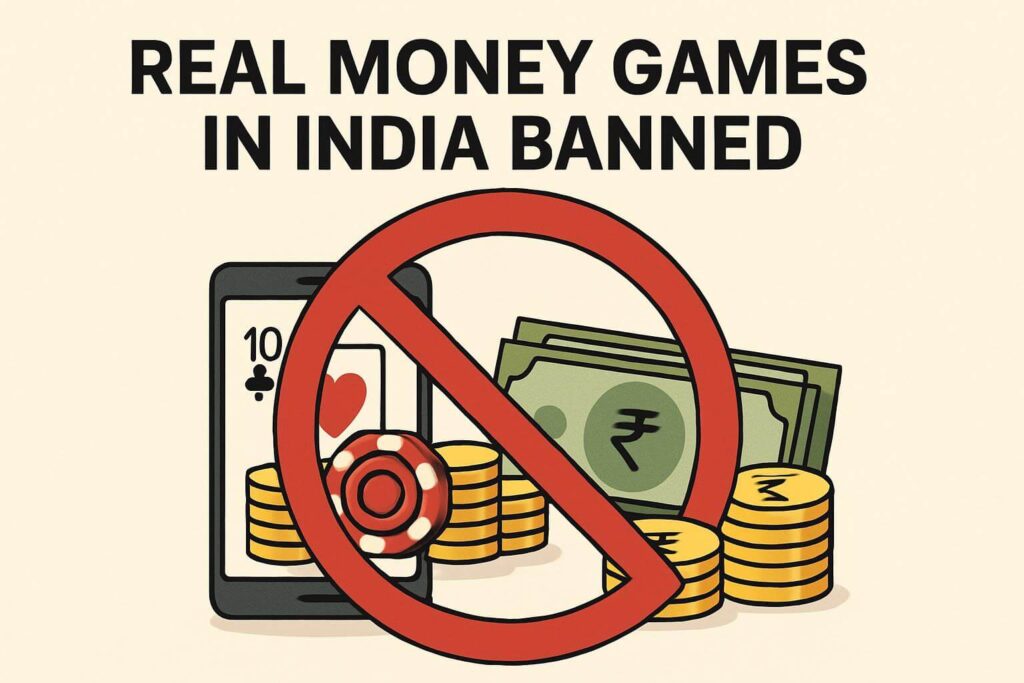
A Growing Debate Around Online Play
India has seen a sharp rise in online gaming over the last few years. Many players turned to mobile platforms that offered both entertainment and quick earnings. Real money games became popular among youth and working professionals. The idea of earning cash while playing appealed to many. However, the surge also brought concerns. Lawmakers and courts questioned the risks tied to money-based gaming. Addiction, financial losses, and lack of regulation soon came under the spotlight. This debate slowly pushed the idea that real money games should be banned in India or at least restricted.
Different states began to study the impact. Some allowed skill-based platforms, while others issued blanket bans. Confusion grew because players could access games online regardless of local rules. Families raised worries about rising debts and irresponsible spending. What started as harmless fun became a wider legal and social issue. The argument shifted from just gaming to public safety.
Why Real Money Games Banned in India Became a Reality
The key reason behind strict rules was the risk of gambling addiction. Unlike casual games, real money platforms involved deposits, bets, and withdrawals. Players often lost control and continued to spend beyond their limits. This created pressure on households, especially in lower-income groups. The government stepped in to safeguard citizens. Banning these games in many states was seen as a protective measure.
There was also the legal angle. Gambling has always been a sensitive issue in India. While games of skill are treated differently from games of chance, the line often gets blurred. Platforms promoting real money play claimed to be skill-based. But regulators felt chance played too large a role. Courts and policymakers had to intervene. States such as Tamil Nadu, Andhra Pradesh, and Telangana took early steps to restrict or ban these platforms. The message was clear: if the risks outweighed the benefits, restrictions were necessary.
Social and Economic Impact of the Ban
The decision to ban real money games in India had both positive and negative outcomes. On one hand, it protected vulnerable groups from exploitation. Many young players who fell into debt traps found relief when platforms shut down. Parents welcomed the move as it reduced distractions for students. Mental health experts also pointed out that removing constant cash-based play helped reduce stress and anxiety in families.
On the other hand, the industry faced heavy losses. Thousands of jobs connected to development, marketing, and support came under threat. The gaming sector had seen rapid growth, attracting big investments. The ban slowed this momentum. Players who enjoyed these games for recreation without overspending also felt disappointed. Some even looked for loopholes or shifted to offshore platforms, which created new challenges for regulation.
The economic debate remains ongoing. Supporters of the industry argue that regulation, not a ban, is the solution. They believe taxes and compliance rules can help balance safety with growth. Critics maintain that addiction and financial risk remain too high. The clash of opinions makes it a complex issue with no easy answer.
What the Future Holds for Real Money Gaming
The story of real money games banned in India is not over. Discussions continue between courts, state governments, and industry bodies. Some suggest creating a central law to bring uniformity across the country. Others want stricter enforcement to block platforms entirely. The future may lie in finding a middle ground where regulated platforms exist under strong monitoring.
Technology will also play a role. Tools to limit spending, verify player identity, and prevent underage participation are being developed. If used wisely, they could provide a safer environment. However, trust has to be rebuilt with both lawmakers and citizens. For now, uncertainty continues. Players remain cautious, and companies wait for clearer guidelines.
The ban reflects the growing struggle between innovation and regulation. India wants to support digital growth, yet it must also protect its citizens. Real money games sit right at this crossroads. The journey ahead will decide whether these platforms return under strict rules or remain off-limits. What is certain is that the debate around gaming, money, and responsibility will stay active for years to come.





